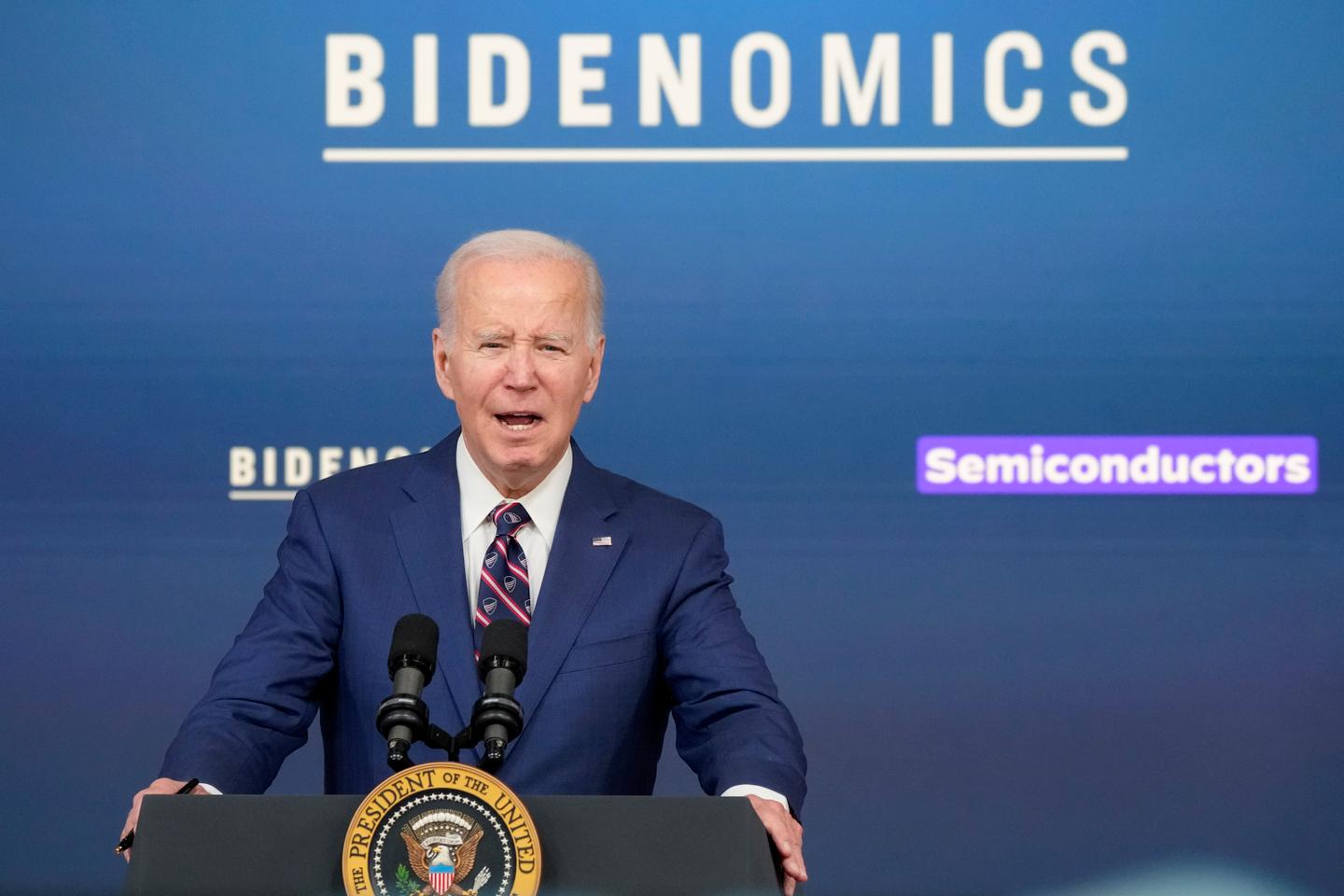


A slogan does not a track record make. Joe Biden is learning this the hard way. For several months, the US president has been criss-crossing the country to tout "Bidenomics," a generic name he has appropriated to refer to the economic policies he has been pursuing for almost three years. But as he prepares to run for a second term, the White House's after-sales service is struggling to convince Americans that Biden has improved their lives, despite flattering macroeconomic data.
After the shock of Covid-19, growth rebounded faster than elsewhere, and it continues to accelerate. No country has been spared from inflation, but it is slowing faster in the US. As for unemployment, the rate was 6.3% when Biden arrived at the White House. Three years later, that rate has been almost halved and 14 million jobs have been created – an unprecedented figure for a single term in office.
Yet voters tend to see the glass as half empty. Two-thirds disapprove of Biden's handling of the economy. An ABC News-Washington Post poll indicates that a third of voters consider the jobs situation to be poor. According to a Yahoo!-Ipsos survey, only 21% of Americans feel that results are better than in other developed countries. Finally, two out of three don't believe inflation is coming down.
"Even if the United States is doing well, 'Bidenomics' isn't making an impression on the population, and that's a disaster for the Democrats," said Laurence Nardon, a researcher at the Institut Français des Relations Internationales and author of a memo on Biden's economic policy. The president may perceive a certain ingratitude on the part of his compatriots, after he launched a vast program of investment and financial support for the middle class. He has taken protectionist measures to revive industryand helped trade unions, which are seen as the best way of improving living standards for wage earners. The aim is to close the liberal parenthesis that was begun under Ronald Reagan and restart social mobility, in order to turn voters away from the populist temptation of Donald Trump.
The poison of inflation
A poll published in early November by the New York Times confirms that anything could happen: With a year to go before the election, Trump would win with a substantial lead in five out of six key states. Only 2% of those surveyed consider the economic situation to be good. One of the survey's findings is that voters are more concerned about inflation than jobs, while feeling that Democrats are focusing more on jobs.
You have 55% of this article left to read. The rest is for subscribers only.
